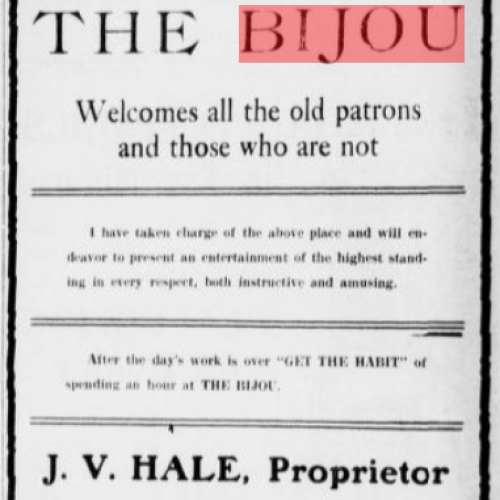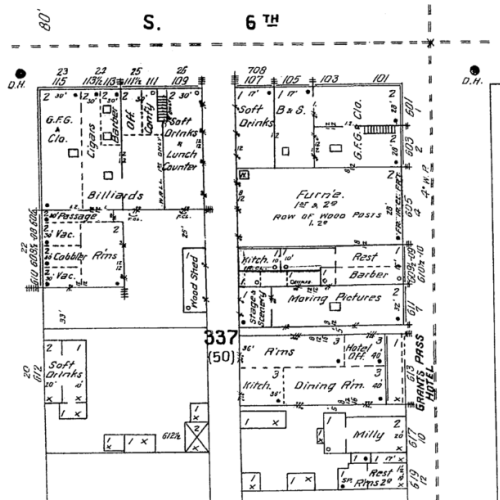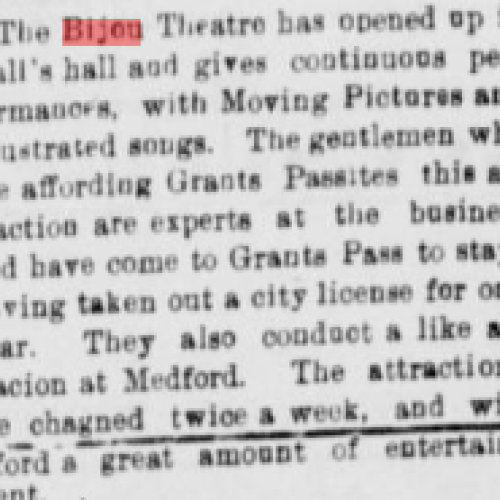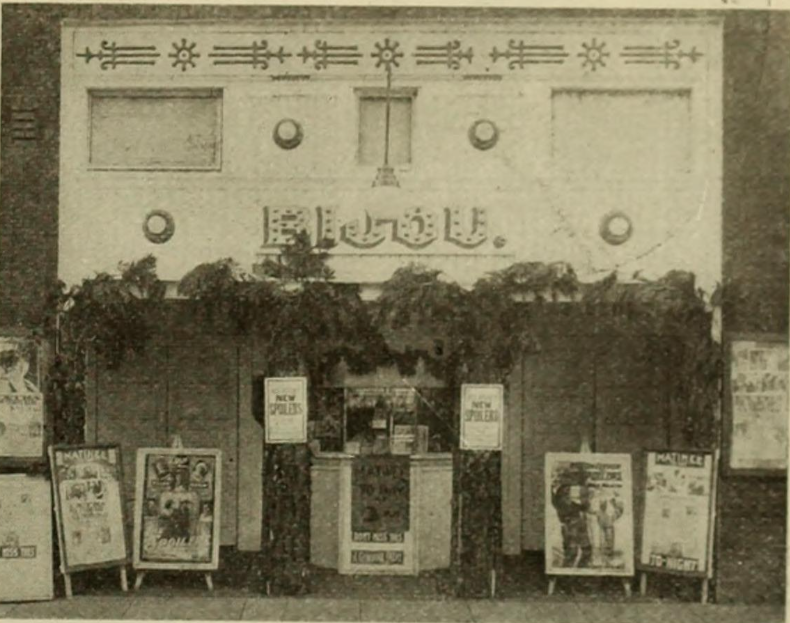
The Bijou Theater in Grants Pass opened in late 1907. The theater was opened by businessmen who were familiar with the theater business and already owned and operated a theater in Medford. The theater was located on North 6th Street, in Hall's Hall. The theater was advertised as "here to stay" to the local townspeople of Grants Pass (1).
The first printed advertisement for the theater appeared in the Rogue River Courier, on January 8th, 1908. There had been previous attempts at other forms of advertising, such as a proposal to the city of an electric sign for the theater that would span across 6th street, like was done in Portland with some theaters. This proposal was never accepted by the city (2). This first ad advertised a 10-cent entry and promised a new set of moving pictures every Monday and Thursday.
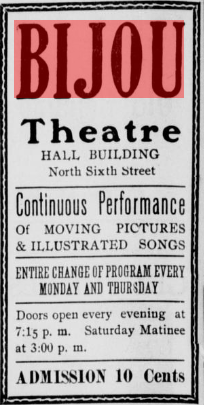
The theater would change hands of ownership several times in its existence, but keep the name the Bijou. The first ownership change came in June of 1908 when Combs and Sears sold the theater to Young and Hall after Combs left Oregon for San Fransico. Young and Hall changed the programming switching from two times a week to three, hoping that the increasing the variety in showings would boost attendance. The theater would also be upgraded, as the new owners put an inclined floor in place to allow the visitors better views of the pictures.
In 1909, the Bijou expanded its form of entertainment to include Vaudeville entertainment. This required the theater to change its business classification with the city of Grants Pass from a moving pictures theater to a regular theater, thusly having to pay $125 in licensing fees per year instead of $100 (3). The theater would change ownership hands once again in 1910. The new owner, J.V. Hale changed the style of ads in the paper and also allowed community organizations, such as a "Good Roads" meeting, to be held in the theater.
For the remainder of the theater's history, the Bijou would shift away from being solely an entertainment theater, and more of a community gathering place holding surprise gatherings for the community, and showing footage taken of the everyday life in Grants Pass (5). One of the most notable promotions the theater held was "Spud Day" in 1915, where the cost of attendance for children could be covered by potatoes instead of the usual entry fee.
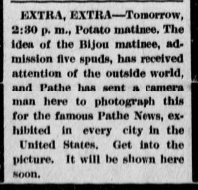
The theater would last appear in the local paper in 1918, with the last ad being run on March 18th (6).
